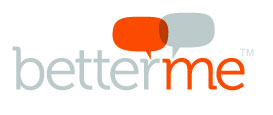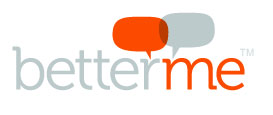
 Biting my tongue. Walking on eggshells. Adjusting my filter. Whatever you call it, I’m constantly having to do it at work so I’m not telling people how I really feel. Cause if I did, I’d be living on $405 a week.
Biting my tongue. Walking on eggshells. Adjusting my filter. Whatever you call it, I’m constantly having to do it at work so I’m not telling people how I really feel. Cause if I did, I’d be living on $405 a week.
Thankfully, there’s a cure.
Betterme.com, an online communication and self-improvement startup, allows you to solicit anonymous feedback on yourself. Or, scarier-yet, it allows people to send you unsolicited feedback.
Send anonymous feedback by simply inputting the recipient’s e-mail address, selecting a category (work, school, social, etc.) and letting the person know what’s on your mind. All feedback you give is rated, resulting in a “My Usefulness Rating” (1 – 5).
BetterMe Founder and CEO Sterling Mace gives Jobacle readers the skinny on anonymous feedback, and why it’s not as ‘ugly’ as you might think.
Q: It doesn’t take an MBA from Harvard Business School (and you have one!) to understand that open communication at work is a rarity. Was there a defining moment when the light bulb went on for this idea?
A: My obsession with open, honest communication had been percolating for a long time but there was definitely an ‘a-ha’ moment. It came when I was out to lunch with a group of friends who worked all worked together at Company X. They had all just gotten out of a long planning meeting, and were all talking about how the presenter “droned on, got off ‘in the weeds’ and didn’t keep people engaged.” Even worse, they said he “always did this.” It was clearly a problem. I asked them if anyone gave him this feedback and I got a bunch of eye-rolls and “of course nots.” This is a senior group of people making important decisions at a Silicon Valley company we all know! I thought: “Too bad this guy will continue underperforming because he isn’t getting this feedback. But also, this company is suffering in a real, strategic way because some fundamental communication isn’t happening. This is crazy.” Bad decisions were being made at a senior level because people didn’t have a way to communicate the most basic – but sometimes sensitive – things.
Q: Even though BetterMe promises anonymity, given the nature of the Web, people will still be skeptical. What’s your sales pitch to put them at ease?
A: Quite simply: Test it out. We created a tool that allows people to communicate in an entirely new and different way. We understand it can be a little scary and it requires trust. That is why I encourage people to send feedback to a friend first, as a little test so they can see what exactly happens, see how the BetterMe system creates anonymity. Then, when they have the comfort that they are in complete control of their anonymity, they can feel confident sending that important feedback to their boss or co-worker.
What is really exciting about our system is that we have combined anonymity with a reputation system. This may sound crazy, but it is crucial. When someone receives feedback from me, they see my color icon (which I can change at will) but they can click that icon and see some important info about the feedback I have sent in the past…how it has been rated, whether it is usually positive or negative. That way, they can decide how much credibility to give the feedback they have received even though they don’t know who sent it. New users can walk through the whole experience at betterme.com/how_it_works.
Q: We know you never name names. But what is the most brutal piece of feedback you have seen come in through the system?
A: We don’t see the actual feedback messages. BetterMe has queries and analytics that identify common topics, words and sentiments, but we don’t read actual feedbacks sent through BetterMe. We do know that so far our users tend to be very constructive – they aren’t “bashing” or “flaming”. In fact, nearly 75% of the feedback sent through BetterMe is either positive or informational (fyi). And users who have received negative feedback find it useful…amazingly, users rate negative feedback as more useful than the positive feedback they receive. So, we believe people are rising to the occasion and showing their best self in both sending and responding to feedback. That is really rewarding.
We know that some people will try to use BetterMe to vent and bash and we have worked really hard to develop features that minimize this behavior because it’s not good for our community. We filter abusive language, allow users to flag abusive feedbacks, and allow the reputation system (Usefulness ratings) to separate the positive people from the negative ones. Eventually, the negative people will find they aren’t welcome in the BetterMe community.
Q: Would you ever consider adding a feature where a person can “reject” feedback? Basically, you would add your e-mail to a list so that BetterMe cannot reach you.
A: We always put our users in control. If a user doesn’t want to read feedback, they certainly don’t have to open it. But BetterMe will always notify you that you have feedback. I think it’s human nature to change your mind over time, so we want to keep the channel of communication open; you may think you don’t want feedback, but after receiving 20 feedback notifications, you may realize there is something you should, in fact, know. We do, however, let users block feedback from specific email addresses. If I receive some feedback that I find abusive, I can choose to block future feedback from that user. We think this feature is important because we want our users to have positive experiences in BetterMe and if another user is ruining it for you, we want you to have the control over future interactions.
Q: What is your dream scenario for BetterMe?
A: Our dream is that BetterMe does in fact unlock all that communication that doesn’t happen now and help people reach their fullest potential. If it does – if our co-workers, friends and even family members feel like they have a way to safely communicate the harsher truths – then we are all better for it.
Leave a Reply